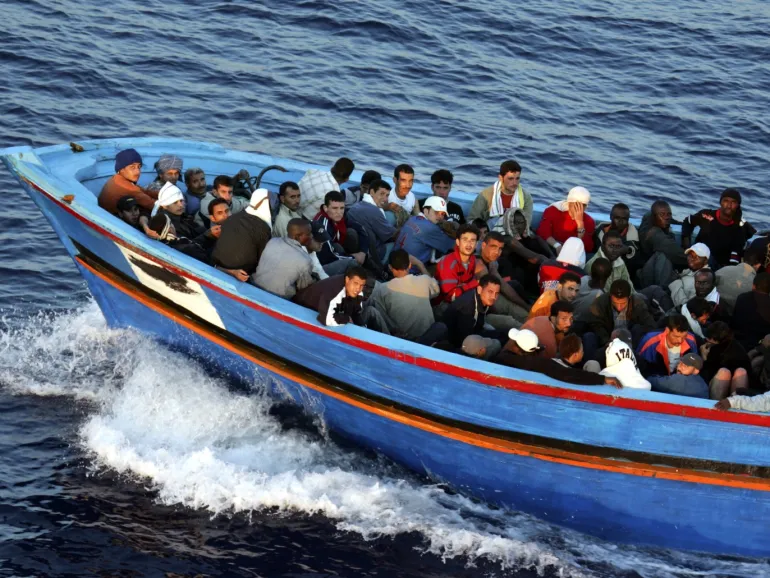Italian Prime Minister Giorgia Meloni announced a 60% decrease in the number of irregular migrants arriving in Italy compared to last year’s figures.
Meloni stated in a press release that agreements signed with North African countries, particularly Tunisia and Libya, contributed to this result, according to the government’s statement. She added that her government « will only allow those with a work contract to enter Italy. »
The Italian Prime Minister also revealed that a joint Italian-Tunisian task force meeting was held in Rome to assist maritime authorities in formulating their plan to combat irregular migration, without providing additional details.

Maritime Search Zone
On April 5, Tunisia announced a new decree concerning the organization of maritime search and rescue operations.
Meloni stated, « The goal of the new decree is to formalize the existence of a maritime zone that mandates the intervention of the Tunisian navy to conduct rescue operations and return migrants to the nearest safe port in Tunisia. »
Commenting on the Italian government’s statement, Magdi Karbaai, a political and human rights activist specializing in migration and asylum issues and residing in Milan, told Al Jazeera Net that « Meloni’s statement is political propaganda and reveals that Tunisia has effectively become Italy’s border guard. »
Karbaai believes Meloni’s statement refutes the claims of Tunisian President Kais Saied regarding plans to settle sub-Saharan African migrants in Tunisia, arguing that their presence in the country is intended to prevent their migration to Italy.
